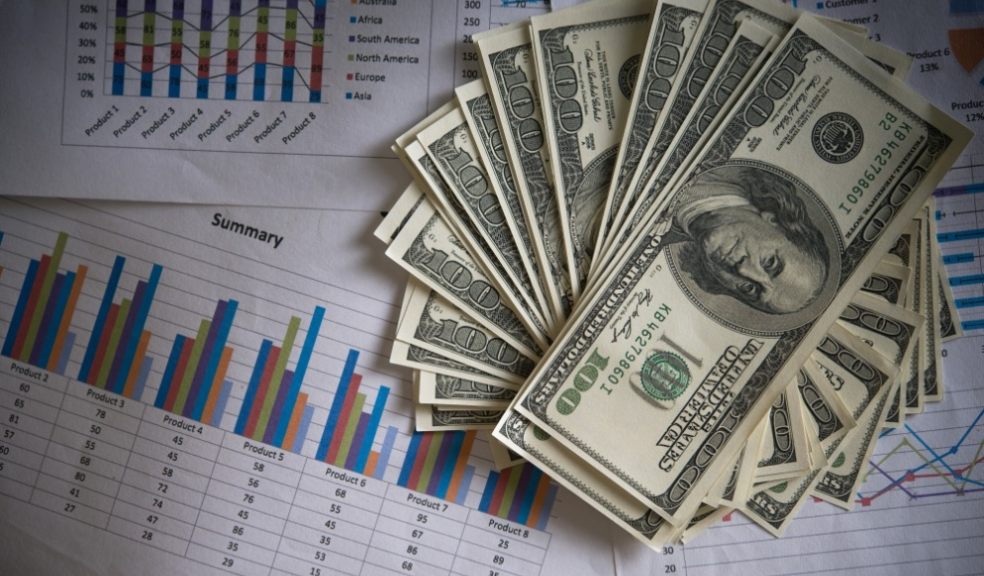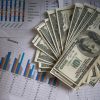
How To Profit From Trading Foreign Currencies in 2024
Foreign currency trading is a popular way for modern investors to profit and grow their investment portfolios. With a daily trading volume worth over US$7 trillion, the global currency market offers various opportunities to leverage price differences for profits; investors must know the market to identify such opportunities. Here’s how currency trading works and how to profit from trading global currencies.
Currency Trading
The world’s currencies are evaluated using the going exchange rate, which provides the relative value of one currency to another. Exchange rates are not constant but fluctuate for different reasons, such as demand and supply, that can be tracked. As a result, traders can profit from the price difference by selling (shorting) or buying (longing) the currencies.
Brokers offer access to the market, listing currencies in pairs for efficient forex trading so that traders can buy and sell the two currencies simultaneously. For example, a buy order on the GBP/USD pair buys the GBP and simultaneously sells the USD.
The fluctuating exchange rate provides the opportunity to buy and sell currencies for profit and is the basic principle of the global currency market. The GDP, monetary policy, inflation rate, trade deficits, and public debts influence the exchange rate and are crucial indicators for analysing markets.
Key Concepts in Currency Trading
Forex trading involves many concepts and information, from basic to advanced, that require time and dedication to master. For traders who actively buy and sell currencies via brokers and do not just exchange foreign currencies for local ones, a deep understanding of market terminology, concepts, and strategies is helpful to ensure profitability.
Currency Pairs
Currency pairs are typically listed with the first called the base and the second called the quote and are expressed in pips (percentage in points) for up to four decimal places. Hundreds of currencies are traded daily, but only eight (the major currencies: USD, GBP, CHF, EUR, AUD, JPY, NZD, and CAD) hold about 80% of the daily trading volume. Most traders have some major currencies in their portfolios and balance them with other currencies with lower trading volumes.
Orders
Market orders refer to the way traders can buy or sell currency pairs. There are five fundamental orders in trading: market, limit, stop, buy, and sell. These orders allow traders to trade at their preferred prices by giving the broker instructions to buy or sell pairs when they reach a specified price. There are also stop-loss and take-profit orders, which allow traders to exit a trade when they hit a specified price.
Trading Sessions and Liquidity
The forex market is divided into four main sections: Tokyo, New York, London, and Sydney. These sessions overlap and open and close daily during the week, ensuring the market is open 24 hours, five days a week (Sunday at 5:00 pm ET and Friday at 5:00 pm ET). As a decentralised market, traders can buy or sell currencies across each session with few limits.
The sessions impact market liquidity, which measures the ease of buying or selling currencies. The forex sessions influence the liquidity, which influences the price in turn. For instance, the USD trading volume is highest when the New York Session is open, and the GBP volume is highest when the London session is open. Most traders trade overlapping sessions for maximum liquidity.
Psychological Discipline
Technical skill is only one aspect of trading; psychological discipline helps traders achieve set goals and manage profits from trading currencies. You have to manage fear and greed, the two emotions that drive investors to organise their portfolios and stick to a trading plan. This is important because markets change, and currency prices may react to sudden events.
Supply and Demand
Supply and demand are two important factors that influence the price of a currency. Generally, a higher demand increases the cost of a currency, while lower demand leads to lower prices. Economic factors such as interest rates, inflation, and political events influence supply and demand; traders must understand how events impact the demand for a currency to time their investments.
Margins and Leverage
Margin refers to the initial deposit traders must make to open positions on a broker. At the same time, leverage is a feature that allows traders to open more prominent trading positions with a smaller sum.
Margin and leverage are essential for profiting from online currency trading because they offer traders the edge to make more profits on their relatively minor deposits. Central banks and other financial institutions dominate the forex market, so traders need a competitive edge.
Strategies for Profiting From Global Currencies
Profiting from currency trading requires patience and planning. Traders must identify opportunities and execute trades according to a plan that maximises profits and limits exposure to market forces.
Trade by Yourself
You could learn to trade financial markets and become a professional trader. You’ll need some trading capital and a broker that offers currency trading. This method fully controls your investment activities; you determine where and how you trade and direct your broker accordingly.
Hold Currencies
You can hold foreign currencies and wait for the exchange rate to change until it reaches your preferred price. This does not require active trading and is a long-term investment. It is typical to hold significant currencies, mainly the USD, against currencies from smaller economies, but traders also have one primary currency against another. Holding currencies is also excellent for combating inflation.
Hire an Investment Manager
An investment manager is another excellent option for profiting from currency trade. A professional trader can handle the analysis and trade execution for a fee while you keep any profit made.
Monitor Markets When Traveling
If you travel often, monitoring exchange rates to gain insights into currency prices is a good idea. This helps you choose the best periods to exchange one currency for another to maximise profits. For instance, the USD might experience high volatility during the US election period due to increased uncertainty.
Considerations for Currency Trading
Trading involves technical and soft skills, which must complement each other for the best results. When trading financial markets, volatility, trading technologies, economic factors, and professional guidance are essential considerations. Study each factor influencing investors’ behaviour and understand your trading strategy to gain a profitable edge.



















